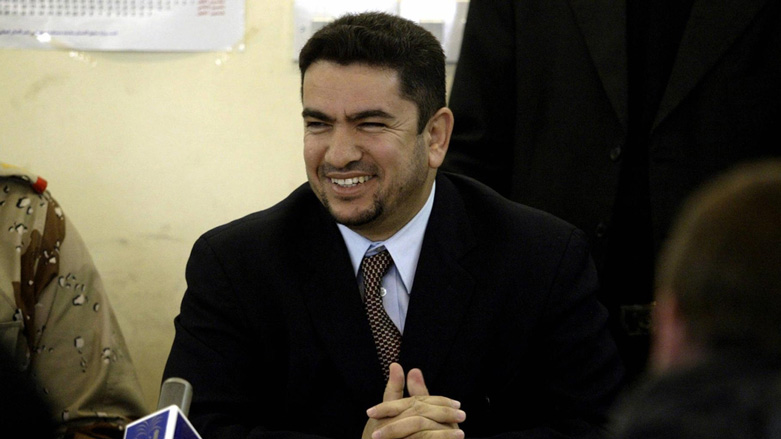US Endorses Adnan al-Zurfi as Iraqi Prime Minister

WASHINGTON DC (Kurdistan 24) - Speaking to reporters by teleconference on Thursday, David Schenker, Assistant Secretary of State for Near East Affairs, endorsed Iraq’s Prime Minister designate, Adnan al-Zurfi.
On Tuesday, Iraqi President Barham Salih named Zurfi, 54, a former governor of Najaf and currently head of the Al-Nasr coalition in Iraq’s parliament, as the country’s next prime minister to replace Adil Abdul Mahdi, who resigned the post in November, following two months of popular protests.
Read More: Iraqi president appoints Adnan al-Zurfi as new PM-designate
“We are supportive” of “the politicians in Iraq who support Iraqi sovereignty,” Schenker said, as he discussed Zurfi’s designation as the next prime minister.
Zurfi “appears to have the support of Sunnis and Kurds and a number of Shi’a,” Schenker noted. So “we are hoping that pro-Iran parties—that is, Iran and its allies—do not move to scuttle the nomination,” which he described as “an inflection point for Iraq,” which will show whether its leadership “will choose sovereignty or whether they will choose to become a wholly owned subsidiary of Iran.”
The initial choice of a prime minister to succeed Abdul Mahdi fell to Iraq’s largest parliamentary bloc, the Sadrists. But as is widely recognized, that choice—Mohammed Tawfiq Allawi—emerged as the result of a deal brokered in Qom, between the Sadrists and the Iranian-backed Fatah Alliance.
Allawi, however, proved unable to gain the support of the Kurdish or Sunni parties. He, thus, failed to secure parliament’s approval and was obliged to withdraw his nomination.
Read More: Masoud Barzani: Kurdistan Region’s right to select candidates in next Iraqi gov. must be respected
Now, Zurfi has thirty days after his nomination to gain the endorsement of the Iraqi parliament. If he does, a major task before him will be to arrange for new elections, a central demand of the months’ long protests in Iraq.
Zurfi’s involvement in Iraqi politics goes back to the 1980s, when he was jailed by Saddam Hussein. Following the 1991 Gulf War, he escaped prison and joined in the popular uprising in the south of Iraq, which paralleled the uprising in Kurdistan. Despite America’s overwhelming military dominance, the US allowed Saddam to suppress the uprisings, in the expectation of a military coup that would oust him.
Read More: The US Watches, as Saddam Crushes the Uprisings: 25th Anniversary
Zurfi fled Iraq and later received political asylum in the US, where he settled in Detroit. He returned in 2003, following the start of Operation Iraqi Freedom, and was appointed governor of Najaf in May 2004 by Paul Bremer, head of the Coalition Provisional Authority, just before Bremer’s tenure in Iraq ended.
Zurfi subsequently served two further terms as Najaf’s governor.
The UN special representative in Iraq, Jeanine Hennis-Plasschaert, welcomed Zurfi’s nomination. “Faced with unprecedented security, political, economic and health crises, Iraq desperately needs an effective candidate,” she said.
Yet, already on Tuesday, the same day that Salih nominated Zurfi, a major Iranian-backed party in the Iraqi parliament announced its rejection of his candidacy.
Read More: Iran-backed faction rejects ‘unconstitutional’ nomination of new Iraqi PM
Speaking with Kurdistan 24 a year ago, when pressure to end the presence of the US-led Coalition in Iraq was starting to grow, Zurfi expressed his opposition to the notion.
Read More: Passing law to end US troops’ stay in Iraq ‘difficult:’ senior Iraqi lawmaker
“We believe that the presence of US troops is within the framework of the International Coalition for the fight against Da’esh,” Zurfi said, using the Arabic acronym for the so-called Islamic State, as he pointed to the “worrying” security situation in Iraq.
Editing by John J. Catherine
